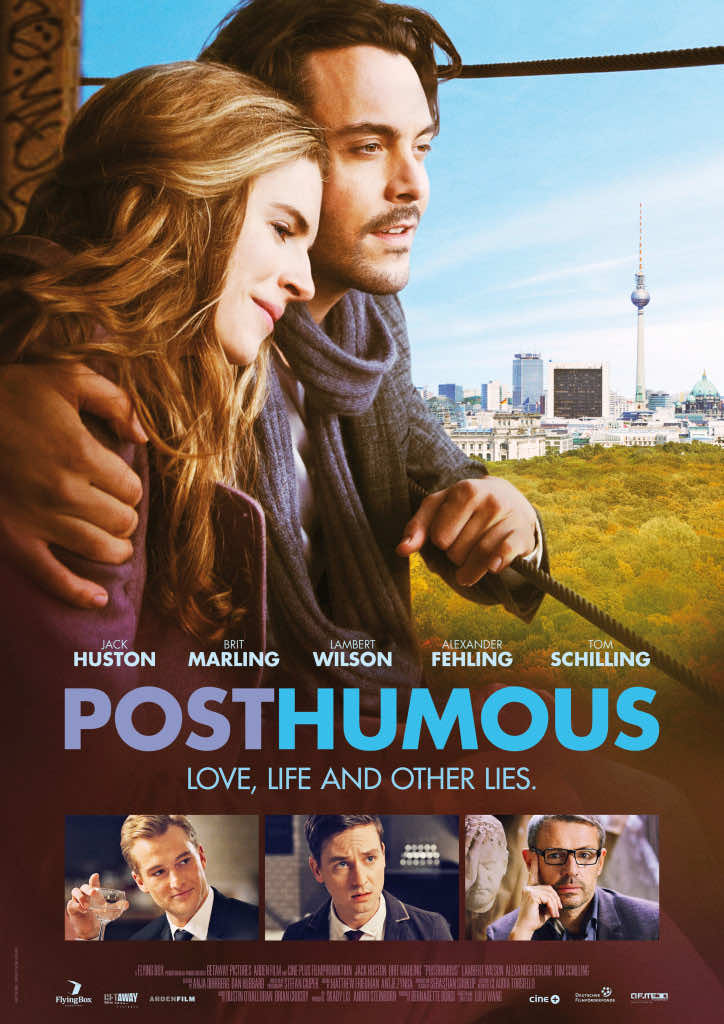 With her feature film debut, Posthumous, which had its North American premiere at Miami Dade College’s Miami International Film Festival, indie writer/director Lulu Wang says she set out to find a fine balance between drama and comedy. The film follows out-of-work reporter McKenzie Grain (Brit Marling) who investigates her suspicions about a supposed posthumous exhibition for an at-best mediocre artist, Liam Price (Jack Huston). It doesn’t help that the gallery owner, Daniel S. Volpe (Lambert Wilson) is a twitchy bundle of nerves whenever McKenzie asks her nosy questions.
With her feature film debut, Posthumous, which had its North American premiere at Miami Dade College’s Miami International Film Festival, indie writer/director Lulu Wang says she set out to find a fine balance between drama and comedy. The film follows out-of-work reporter McKenzie Grain (Brit Marling) who investigates her suspicions about a supposed posthumous exhibition for an at-best mediocre artist, Liam Price (Jack Huston). It doesn’t help that the gallery owner, Daniel S. Volpe (Lambert Wilson) is a twitchy bundle of nerves whenever McKenzie asks her nosy questions.
Wang says she wanted to allow the situations to speak for themselves, so she instructed the actors to bring a sort of gravitas to their performances that doesn’t amp up the jokes but, rather, brings them down to earth. “We weren’t going for the jokes, but the humor was in the situation or with the camera work,” says the filmmaker. “I talked to my DP a lot about that, about the framing and how we can use the camera to highlight the lightness of the situation. I wanted the characters to be dramatic because I feel like, in my life, I can be very dramatic. People I know can be very dramatic about their situations, even though from the outside it could look very ridiculous, so I wanted the actors to know that they were not in a comedy.”
As with many independent movies, there were a few false starts. There were periods Wang thought that the film was greenlit and ready to begin production, and various production designers came and went. What could be disheartening to some allowed the director to get to know her film’s setting better: the city of Berlin. Wang, who lives in Los Angeles and grew up in Miami, says she spent somewhere around two to three years scouting locations in Berlin with different production designers, staying in the city for months at a time. She eventually came to fall in love with the city. The film features a bright color palette, reflecting the lightness of the film’s drama and humor. When asked about the film’s high-contrast, brilliant quality, she says, “Berlin really helps with that … Usually they shoot World War II movies in Berlin. We didn’t feel like there were that many movies in the mainstream that have really captured the artistic nature of Berlin.”
She says the capital city of Germany is much brighter than most would think. “Even in the restaurants they’ll have pools of light,” she notes. “They create spaces using light, and that’s what we tried to do also. My DP and I would talk about orange and blue light or green light for the night scenes and how to create corners and more dimension with lighting.”
She also notes Berlin is an amazing city for art, and the film is rich in capturing that. Art not only figures into the movie’s plot, but it appears throughout the film in many settings, not just in Liam’s studio or Daniel’s gallery. “I love the amount of art on the streets,” says the director. “It’s much more diplomatic. There’s a balance of what’s being seen on the street and what’s being shown on the galleries’ white walls, and there’s also a lot of pop up spaces. People are really utilizing abandoned buildings to create a restaurant or gallery.”
* * *
You can read more about Wang’s casting coup for her first feature as well as the old-time films that inspired her after jumping through the logo for Miami New Times art and culture blog “Cultist,” where I wrote much more about my chat with Wang ahead of her film’s Friday premiere at the Miami International film festival:
Posthumous has one more screening at MIFF, today, Saturday, March 14, at 4 p.m. at the Cinepolis in Coconut Grove. Tickets are $13. Call 844-565-6433 or visit this link for tickets.











